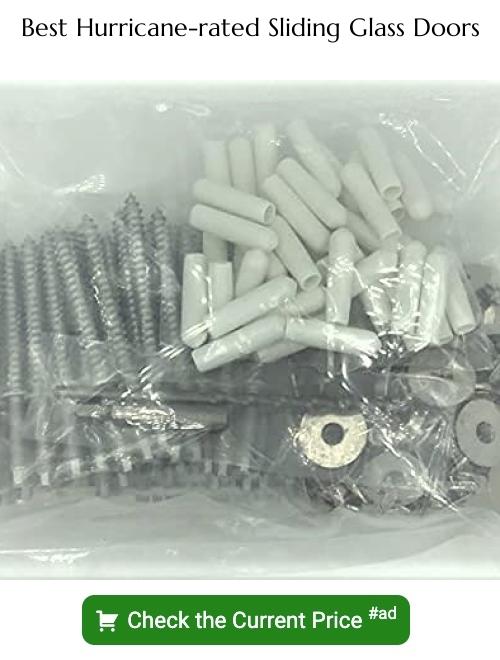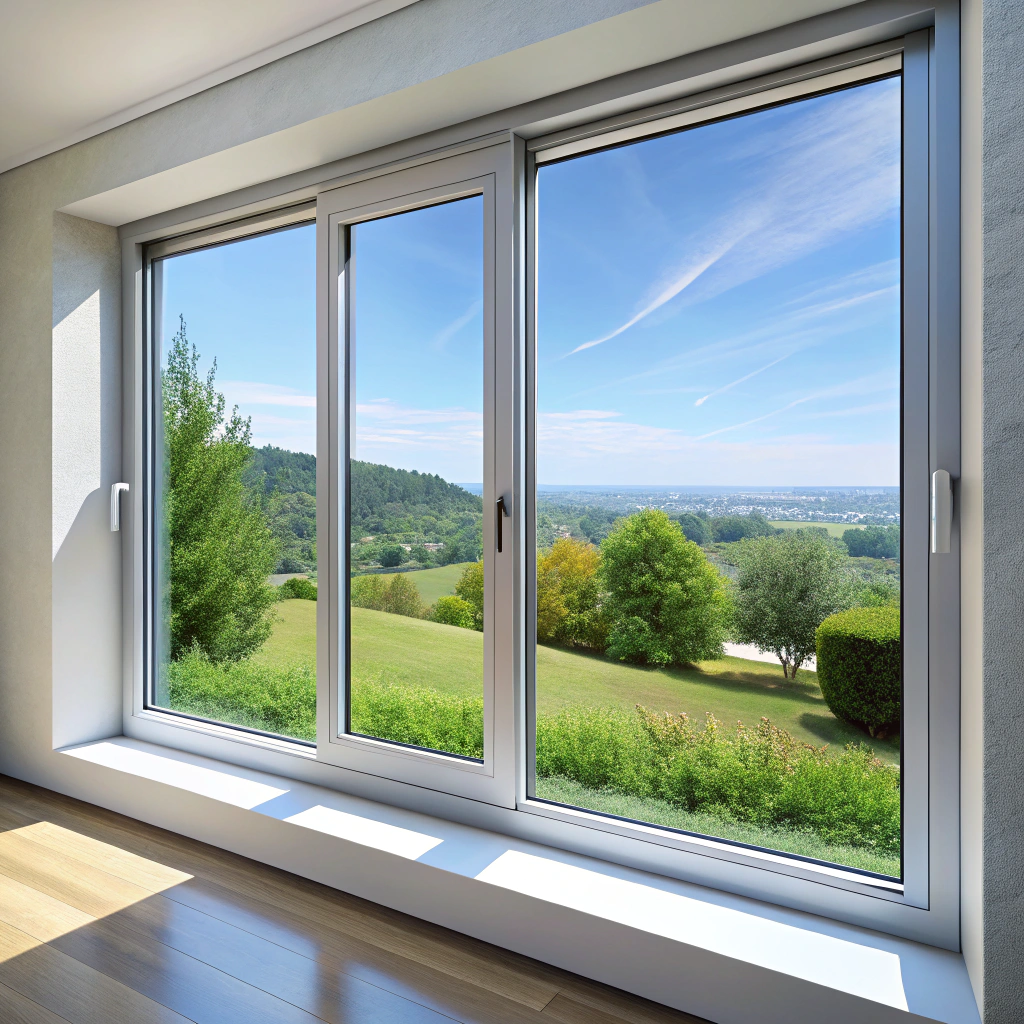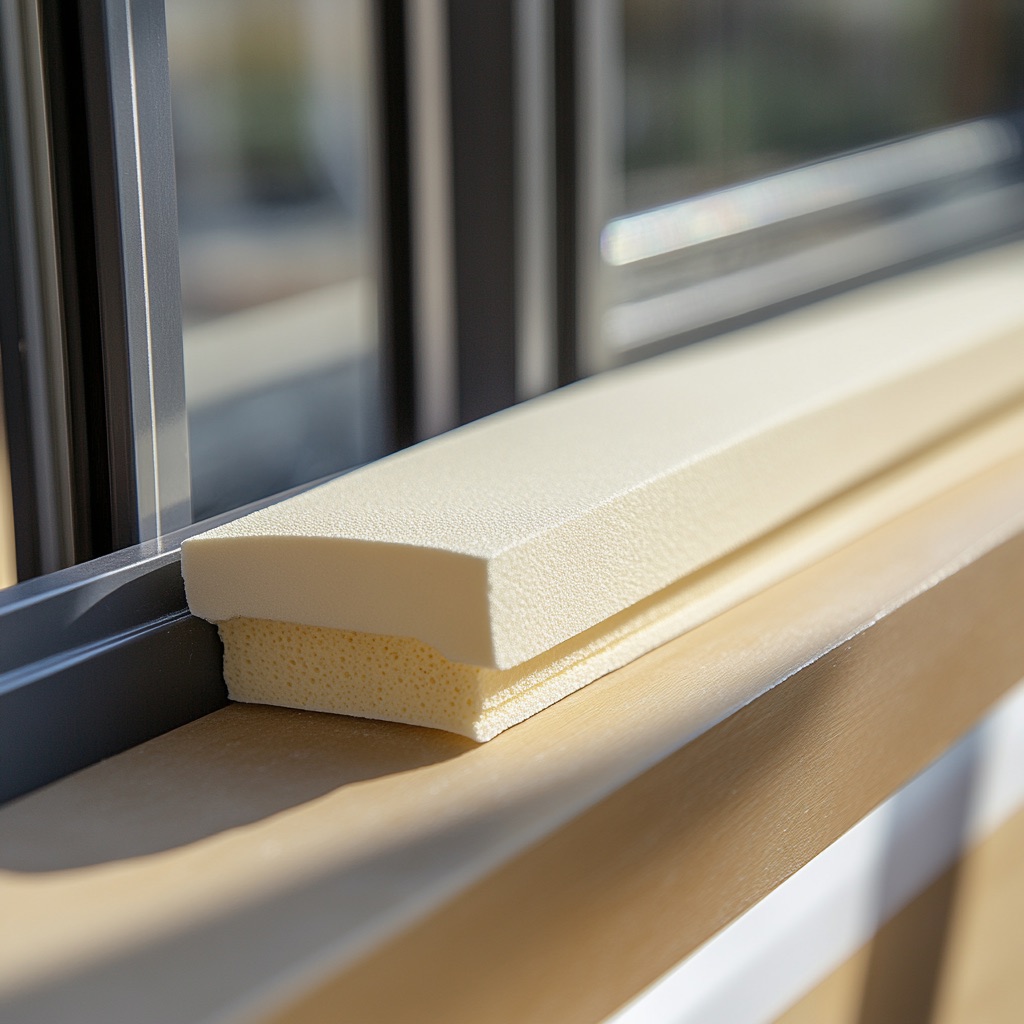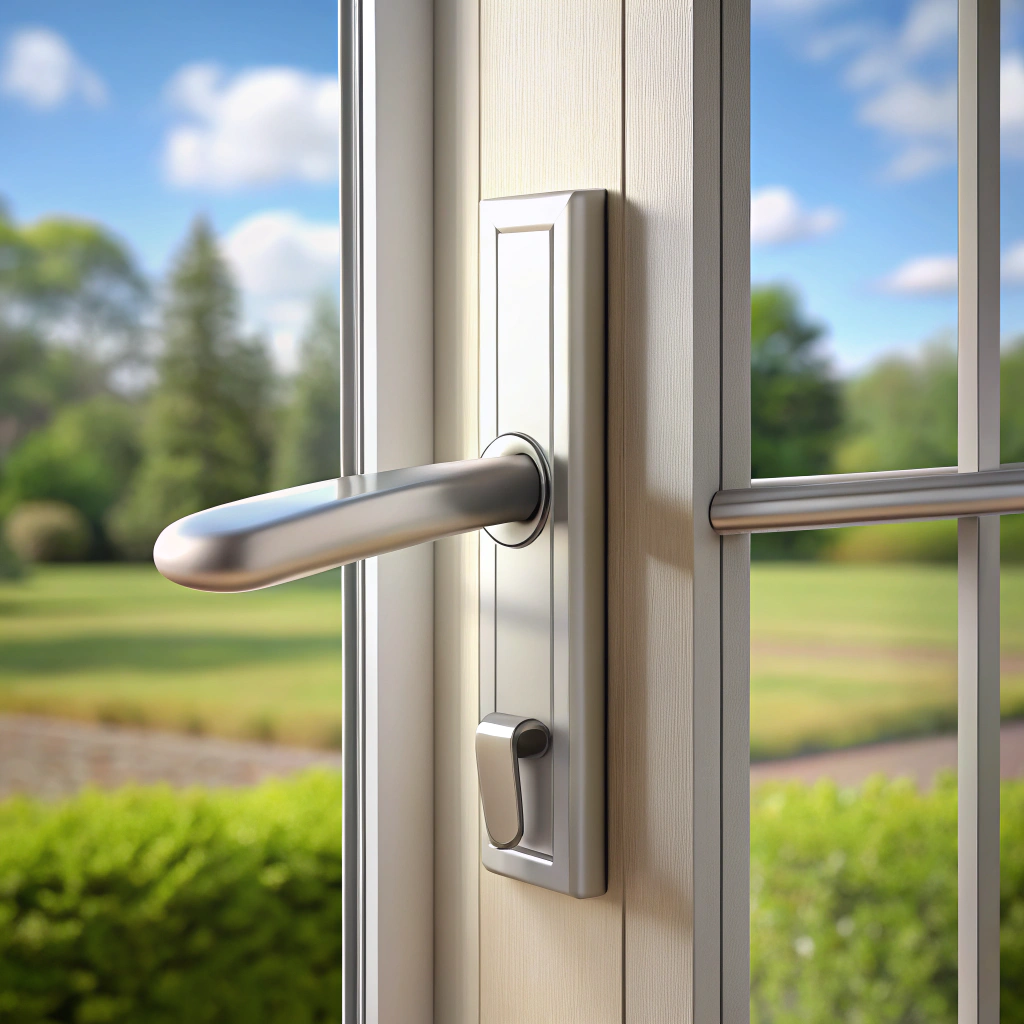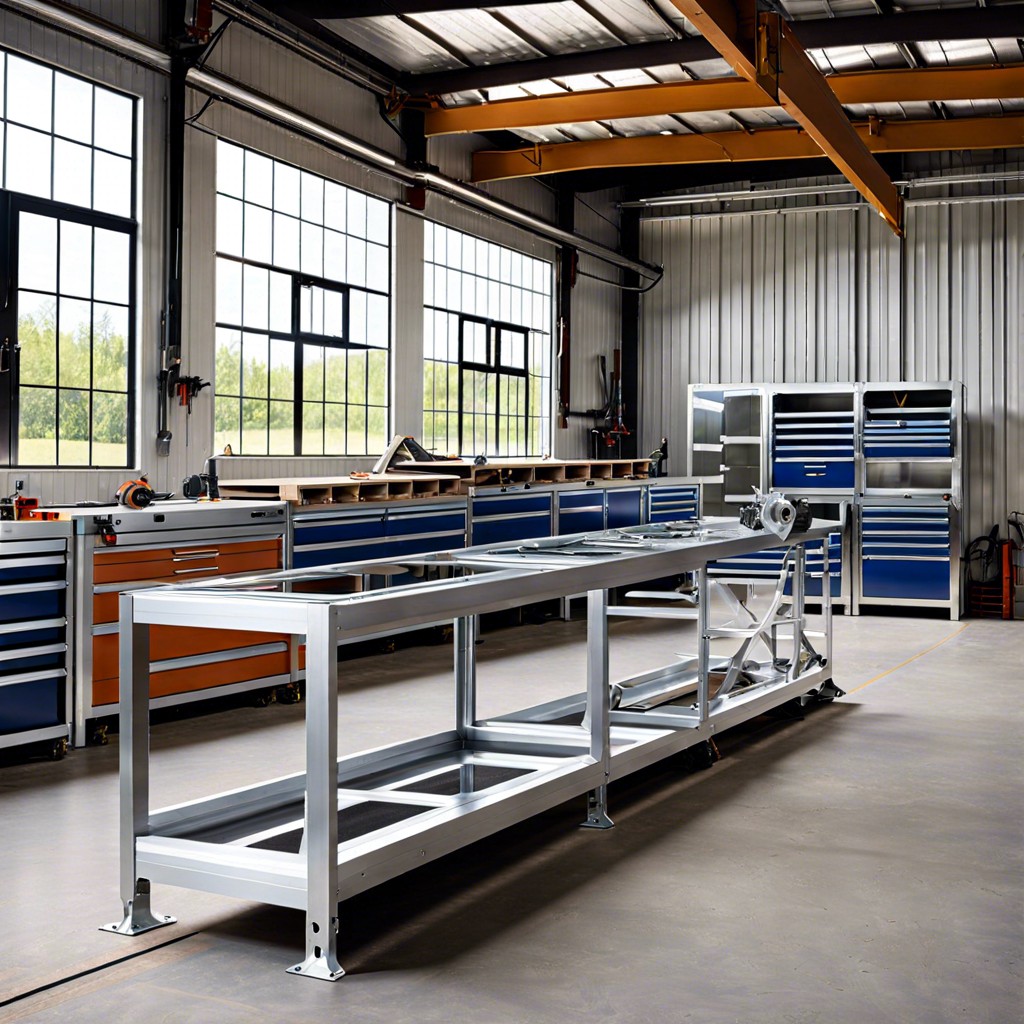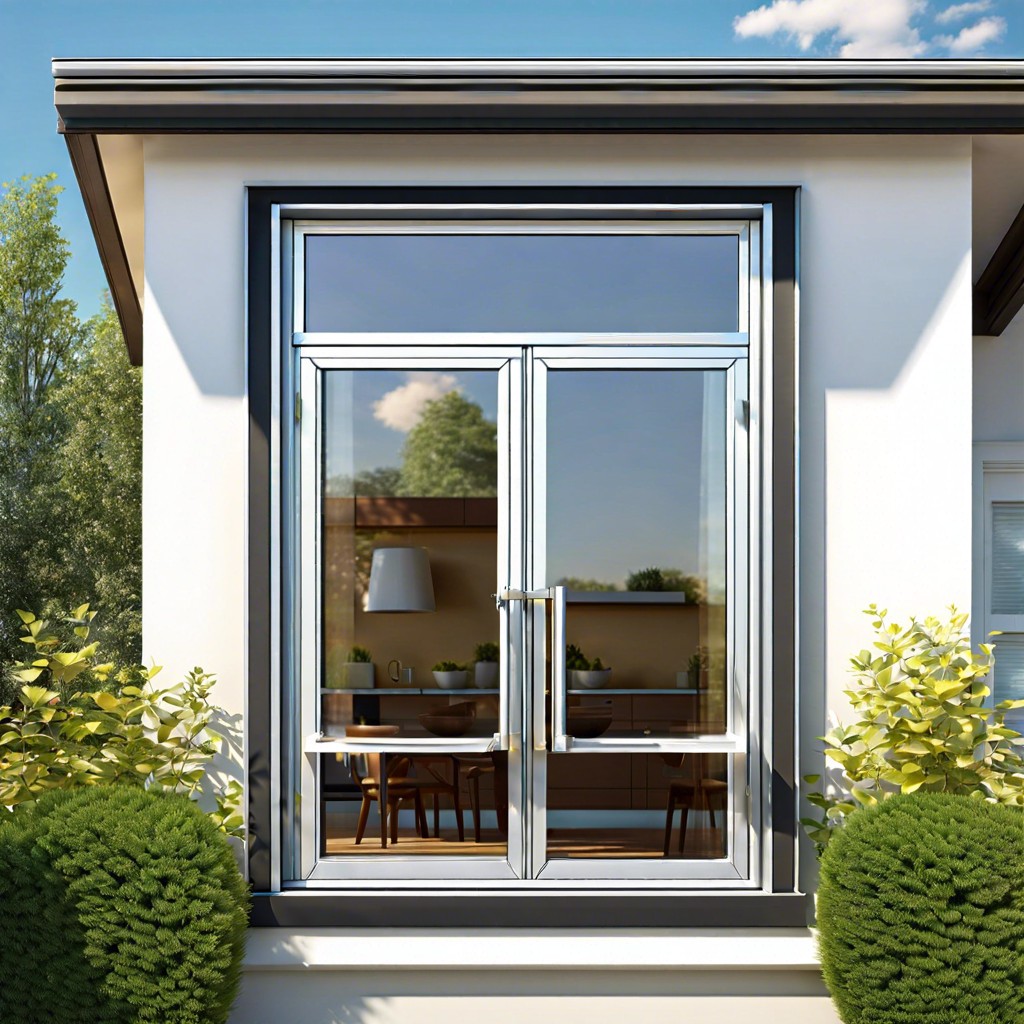Exploring the costs of hurricane impact sliding glass doors is essential because it aids homeowners and builders in making effective budgetary decisions while ensuring maximum safety and durability.
Key takeaways:
- Material costs: Tempered or laminated glass, frames, and hardware affect prices.
- Labor costs: Complexity, expertise, region, type, size, and scope affect costs.
- Cost benefits: Enhanced protection, reduced insurance premiums, energy efficiency, increased home value, and long-term durability.
- Installation costs and fees: Labor costs range from to per hour, plus permit fees, supplies, and additional repairs or security features.
- Insurance discounts: Impact doors can lower insurance premiums due to enhanced safety and risk assessment.
Material Costs
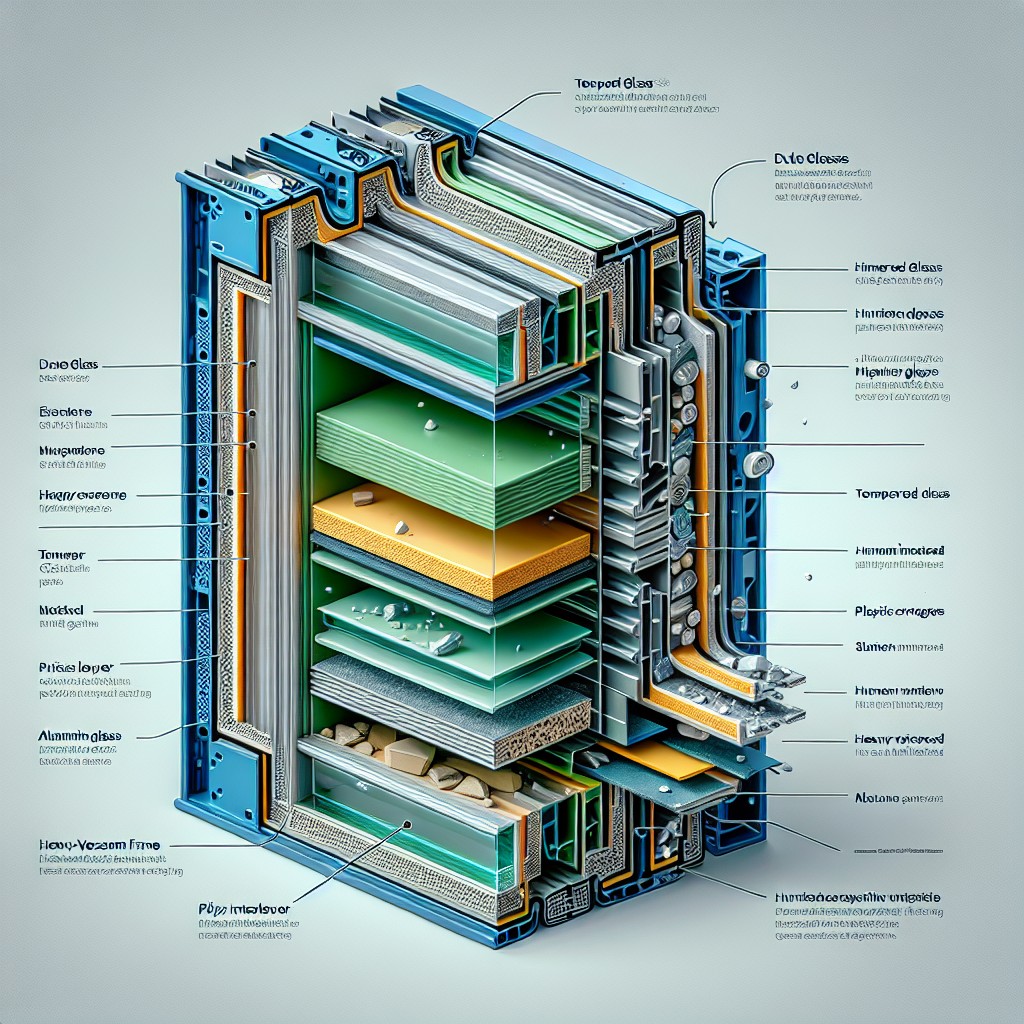
The primary component that determines the bulk of your material expense is the type of glass and frame used. Tempered glass is designed to shatter into small, harmless pieces, offering strong resistance to wind and debris, while laminated glass has a plastic interlayer that holds the glass together even when shattered, providing an additional barrier against storms. Frames are often constructed from heavy-duty aluminum, vinyl, or steel, with aluminum being a popular choice in hurricane-prone areas due to its strength-to-weight ratio.
The thickness of the glass and the overall dimensions of the door also play a role in the material cost. Thicker glass and larger doors will be pricier but offer enhanced protection. Low-E coatings and impact-resistant treatments applied to the glass are other factors that add to the cost but can result in better energy efficiency and protection.
Additionally, hardware components like handles, locks, and track systems are crafted for durability and can influence the overall material expenses. Higher quality hardware is generally more expensive but provides added security and longevity.
When considering material costs, it is also essential to weigh the trade-offs between initial outlay and potential long-term savings due to reduced damage from storms, decreased insurance premiums, and energy conservation. Keep in mind that investing in high-quality materials can result in significant cost savings over time despite the higher upfront cost.
Labor Costs
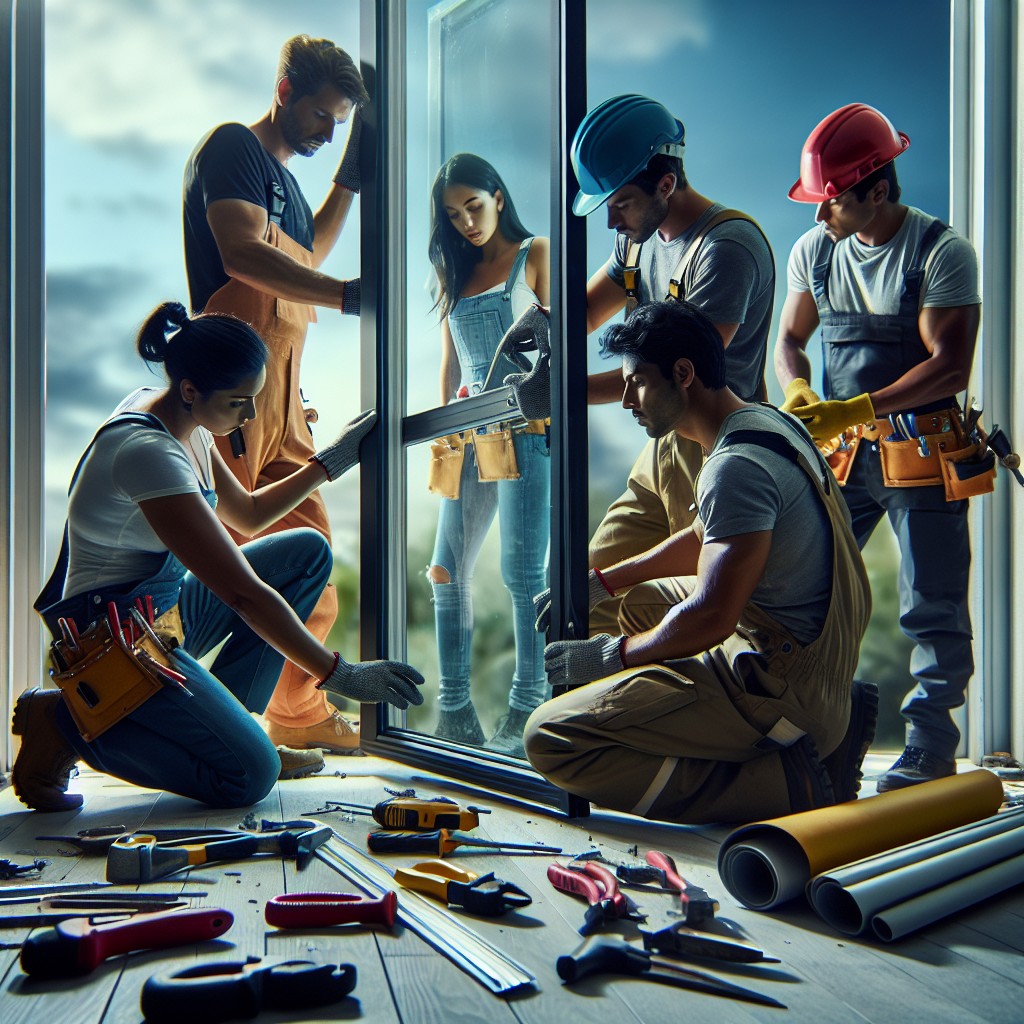
Labor costs for installing hurricane impact sliding glass doors can vary greatly depending on several factors:
1. Complexity of Installation: The more complex the job, such as custom sizing or additional structural support, the higher the labor cost.
2. Installer Expertise: Experienced contractors generally charge more, but their expertise can provide better installation quality and efficiency.
3. Regional Differences: Labor costs differ by geographic location due to local economic conditions and demand for skilled labor.
4. Type of Installation: A new installation often costs more in labor compared to a replacement, as it may involve additional construction work.
5. Size and Scope of Project: Larger doors or multi-panel systems require more time and manpower to install, reflecting a higher labor price.
Research several quotes from local professionals to get a better understanding of labor costs in your area. Ensure installers are licensed and insured, and ask for references to assess work quality.
Cost Benefits of Hurricane Impact Sliding Glass Doors
Hurricane impact sliding glass doors are an investment that offers substantial cost benefits over time. While the initial outlay may be higher than for standard doors, homeowners can reap financial rewards in multiple ways:
- Enhanced Protection: By resisting high winds and flying debris, these doors minimize damage during storms, potentially saving thousands in repairs.
- Reduced Insurance Premiums: Many insurance companies recognize the added protection of impact-resistant doors and may offer discounts on homeowners’ insurance.
- Energy Efficiency: The improved insulation from these doors can lead to lower heating and cooling costs by maintaining a more constant indoor temperature.
- Increased Home Value: Homes with hurricane-proof features often have a higher market value due to their improved safety and durability.
- Long-Term Durability: Built to withstand harsh conditions, these doors tend to have a longer lifespan, meaning less frequent replacement and cost savings over time.
By considering these points, homeowners can assess the long-term economic advantages of installing hurricane impact sliding glass doors.
Installation Costs and Fees
The installation of hurricane impact sliding glass doors should be performed by professionals to ensure proper fit and functionality. Typically, installation costs range from $50 to $80 per hour, depending on the complexity of the job and local labor rates. These fees cover the removal of existing doors, preparing the opening, and the precise installation of the new doors.
Additional fees to consider might include:
- Permit fees: Necessary for ensuring the installation adheres to local building codes.
- Project supplies: Fasteners, flashing, sealants, and weather stripping required for the installation.
- Door frame repair or modification: If the existing frame needs adjustment to fit the new door.
- Enhanced security features: Installation of additional locks or security sensors as part of the door system.
Remember, investing in a professional installation will not only guarantee safety but also maximize the doors’ performance, particularly their resistance to hurricane forces.
Insurance Discounts for Installing Hurricane Impact Doors
Installing hurricane impact doors can lead to insurance premium discounts, making them a cost-effective long-term investment. Homeowners in hurricane-prone areas may be eligible for these discounts because these doors significantly reduce the risk of property damage during severe storms.
Here’s how:
- Enhanced Safety: Hurricane impact doors withstand high winds and flying debris. This security can lower the chances of claims related to storm damage.
- Risk Assessment: Insurance companies often adjust premiums based on a home’s risk profile. Impact-resistant features can favorably tip this evaluation, leading to lower premiums.
- Certification Requirements: To qualify for discounts, doors must typically meet specific standards set by organizations like the American Society for Testing and Materials (ASTM).
- Verification: Homeowners may need to provide proof of installation, such as a certificate from the installer, to confirm the doors meet the required safety criteria.
- Local Regulations: Some local governments have partnerships with insurance companies to incentivize homeowners to upgrade to hurricane-ready fixtures.
- Long-Term Savings: Although the initial investment is higher, the potential for reduced annual insurance premiums can add up to significant savings over time.
Remember to consult your insurance provider to determine the precise savings available for your home and region.
Maintenance and Longevity Factors Impacting Cost
Understanding how maintenance and durability affect the overall cost of your hurricane impact sliding glass doors is crucial. These doors are constructed to withstand harsh weather conditions, requiring less frequent repairs than conventional doors. The robust materials used, such as tempered or laminated glass and reinforced frames, contribute to their longevity. Reduced maintenance needs translate into cost savings over time.
Additionally, regular upkeep such as cleaning the tracks and lubricating the rollers can help maintain smooth operation and extend the life of your doors. Consistent use of the correct products for cleaning and lubrication is essential to prevent corrosion or damage to the door’s components.
It’s also important to promptly address any minor issues, like sealant gaps or hardware malfunctions, to avoid more significant expenditures down the line. Investing in a door with a strong warranty can offer peace of mind and protect against unexpected costs.
Over time, the initial investment in a high-quality hurricane impact sliding glass door can prove economical due to these factors, making it a worthwhile consideration for homeowners in storm-prone regions.
Energy Efficiency and Potential Utility Savings
Hurricane impact sliding glass doors not only provide robust protection against storms but also offer enhanced energy efficiency. These doors feature special coatings and heavy-duty materials that help to reduce heat transfer, contributing to a more stable indoor temperature. As a result, homeowners may notice a decrease in energy consumption for heating and cooling, leading to potential utility savings over time.
Incorporating multi-layered glazing and gas fills, these doors can further insulate homes from external temperatures. The energy performance of such doors is often reflected in their ENERGY STAR ratings, an indication of their ability to lower energy bills. Additionally, their tight seals prevent air leaks, minimizing the strain on HVAC systems.
By keeping ultraviolet (UV) rays at bay, these doors also prevent the fading of fabrics and furnishings, indirectly saving money on potential replacement costs. Over time, investment in hurricane impact sliding glass doors can be recouped through the accumulation of these utility savings and reduced wear on household items.
Hurricane Impact Sliding Glass Door Features and Price Differentiation
Hurricane impact sliding glass doors are designed with several features to withstand extreme weather conditions, and these features often differentiate their prices.
Glass Composition: Doors with laminated glass, which consists of a tough interlayer sealed between two layers of glass, tend to be pricier due to their superior impact resistance.
Frame Materials: Choices often include aluminum, vinyl, and steel. Aluminum frames are lightweight and strong, but steel offers the highest level of protection, though at a higher cost.
Hardware and Locking Mechanisms: Enhanced hardware like corrosion-resistant rollers and multi-point locking systems add to the cost but provide better security and longevity.
Glazing Options: Some doors come with additional glazing to improve energy efficiency, such as low-emissivity (Low-E) coatings, which can influence the price.
Certification Ratings: Products may have certifications like Miami-Dade NOA or Florida Product Approval, indicating they’ve passed rigorous testing standards, which can also impact cost.
As you compare doors, consider how each feature aligns with your required level of protection and overall budget.
Building Code Requirements and Impact On Pricing
Local and regional building codes establish minimum standards for the construction and renovation of homes, including specifications for hurricane impact sliding glass doors in areas prone to storms. These codes are enacted to ensure the safety and durability of structures against severe weather conditions.
– Adherence to building codes is mandatory; non-compliance can result in fines and the requirement to redo the work.
– Codes may necessitate specific wind load, impact resistance, and design pressure ratings for doors, influencing product selection and price.
– Variations in code requirements across different municipalities and states can cause price discrepancies due to differing performance characteristics needed.
– Updates to building codes can retroactively affect homes undergoing renovation, potentially increasing project costs to meet new standards.
– Professional installation by a code-compliant contractor can ensure proper door functioning and compliance but may add to the overall expense.
Understanding these codes is critical for homeowners to ensure their doors are not only safe and compliant but also a sound investment in the long term.
Customization Options and Their Impact On Costs
Customization can significantly influence the overall cost of hurricane impact sliding glass doors. Enhanced features and unique design choices often come with a higher price tag due to the extra materials and labor required to meet specific aesthetic or functional demands.
Here are some key points to consider:
- Glass tinting and coatings can be customized for privacy or to reduce UV radiation, leading to variations in cost.
- Upgraded door frames, such as those made from premium materials like aluminum or vinyl, may incur additional expense while offering improved durability and style.
- Specialty hardware or locks contribute to a more secure installation but also increase the investment.
- The incorporation of impact-resistant decorative glass patterns injects individuality but at a larger financial outlay.
- Non-standard dimensions require custom fabrication, which can raise the price compared to standard sizes.
- Choosing between single, double, or even triple pane glass affects both performance and price, with multiple layers providing better insulation and protection.
When selecting custom features, balancing between desired qualities and budget is crucial, as these choices determine both the final appearance and the cost of your sliding glass doors.
The Correlation Between Door Size and Price
Generally, larger doors command higher prices due to the increased materials, strengthened structural components, and more complex installation requirements. Here’s how size influences cost:
- Materials Usage: More glass and framing materials are required to cover a larger area, directly affecting the overall material cost.
- Thickness and Durability: Larger doors may need thicker glass to maintain structural integrity against hurricane forces, adding to the expense.
- Complex Installation: The labor involved in handling and installing a large, heavy door safely often increases installation time and labor costs.
- Reinforcement Needs: Wider doors may require additional reinforcement to withstand high winds, which can result in a steeper price.
- Custom Dimensions: Custom-sized doors are pricier than standard sizes due to the specialized production process.
Price Comparison Between Leading Manufacturers
When comparing prices between leading manufacturers of hurricane impact sliding glass doors, it’s important to consider several factors that influence cost:
1. Quality of Materials: Higher-end brands often use thicker glass and stronger frames, which can drive up the price.
2. Reputation and Warranty: Established brands with proven reliability may charge more. However, they often offer extensive warranties that can provide long-term value.
3. Innovation and Technology: Manufacturers that invest in research and development to create advanced impact-resistant features might offer their doors at a premium.
4. Design Options: Brands that provide more customization in terms of size, color, and finishes typically have a higher price range due to the additional manufacturing processes involved.
5. Volume and Availability: Larger manufacturers may benefit from economies of scale, potentially offering more competitive pricing compared to smaller, boutique firms.
Remember, while cost is a significant factor, it’s also essential to weigh the longevity and performance of the doors, as a higher initial investment might result in greater savings over time due to reduced maintenance and energy costs.
Market Trends Affecting Hurricane Impact Sliding Glass Door Costs
Increasing demand in hurricane-prone regions pushes manufacturers to innovate and expand their product lines. This often leads to more competitive pricing and a wider variety of options for consumers.
Technological advancements in the production of impact-resistant glass improve efficiency and lower manufacturing costs over time. These savings can trickle down to consumers as reduced prices or better value in terms of product longevity and performance.
Global economic factors, such as the cost of raw materials and international trade policies, can influence the final cost of hurricane impact sliding glass doors. For instance, fluctuations in the price of aluminum or glass due to tariffs or supply chain disruptions may affect retail prices.
Environmental regulations may also play a role in market costs. Stricter regulations can increase production costs, but they can also lead to the development of more energy-efficient products that provide long-term savings for homeowners.
The competitive landscape among producers and retailers of hurricane impact sliding glass doors can lead to price wars, sales, and discounted installation services, all of which benefit savvy consumers looking for the best deal.
Lastly, as the general public becomes more aware of the importance of disaster preparedness, the increase in consumer education and demand for protective home features can further shape the market and pricing.
Financing Options for Homeowners
Investing in hurricane impact sliding glass doors can be a significant financial undertaking. Understanding financing options available can help spread out the expense and make it more manageable:
1. Home Equity Loans: Homeowners can borrow against their home’s equity to fund improvements such as installing impact-resistant doors.
2. Personal Loans: These unsecured loans can be used for home upgrades without putting your home at risk as collateral.
3. Credit Cards: Some providers offer 0% interest promotional periods, suitable for those confident they can repay the cost before high interest rates kick in.
4. Manufacturer Financing: Door manufacturers or installers may provide financing plans, sometimes with promotional terms like deferred interest.
5. Government Loans: Programs like the FHA’s Title I Property Improvement Loan can offer low-interest options for home safety upgrades.
6. PACE Financing: Property Assessed Clean Energy programs allow homeowners to finance improvements and pay them back as an assessment on their property tax bill.
Each of these options requires consideration of interest rates, repayment terms, and potential impact on credit score. Homeowners are advised to consult with financial advisors or lenders to choose the best financing path for their circumstances.
Resale Value Considerations for Homes With Impact-resistant Features
Investing in hurricane impact sliding glass doors not only protects a home from severe weather, but it can also enhance its marketability and desirability. Prospective buyers often see such upgrades as valuable additions since they provide peace of mind and save on future modification costs.
Here are a few points that illustrate how impact-resistant features can influence a home’s resale value:
- Enhanced Safety Appeal: Buyers in hurricane-prone areas prioritize safety. Homes with built-in protective features tend to attract more interest, potentially leading to quicker sales.
- Energy Efficiency: These doors can improve a home’s energy efficiency, a strong selling point for eco-conscious buyers and those looking to save on energy bills.
- Insurance Premium Reductions: Lower homeowners’ insurance premiums due to increased safety measures can be a persuasive factor for buyers.
- Aesthetic Value: Modern impact doors come in various styles that can boost a home’s aesthetic appeal, making it more attractive to buyers.
- Long-Term Savings: The durability of impact-resistant doors can reduce the need for future repairs and replacements, a financial advantage that buyers can take into account.
- Code Compliance: Homes that meet current building codes with updated features can command higher prices, as they save the new owner from potential retrofitting expenses.
- Noise Reduction: The sound-dampening quality of these doors is an underrated feature that adds to the home’s tranquility and overall value.
Understanding these points can help homeowners make informed decisions about their investments in hurricane impact sliding glass doors and their potential effects on future resale value.
FAQ
How much do hurricane proof sliding glass doors cost?
The cost of hurricane-proof sliding glass doors typically ranges from $300 to $1,100, with installation costs varying from $600 to over $2,000 based on project complexity and local rates.
What is the average cost of hurricane impact windows?
The average cost of hurricane-impact windows for an entire home typically ranges from $1,908 to $10,707, with the national average being $5,332.
How much does an impact door cost?
The installation cost of an impact door in a popular style generally ranges between $2400 and $3000, minus custom orders or high-end material choices.
How much does it cost to replace sliding glass doors in Florida?
The average cost to replace sliding glass doors in Florida, inclusive of installation costs, is approximately $3000, with variations depending on the door type and installation complexity.
What are the price differences between various brands of hurricane proof sliding glass doors?
The price differences between various brands of hurricane proof sliding glass doors range significantly depending on size, material quality, and installation costs, with economy brands priced around $1,000 to $3,000 and premium brands averaging from $4,000 to upwards of $10,000.
Is there an additional cost for installing impact resistant windows in flood-prone areas?
Yes, installing impact-resistant windows can come with an additional cost due to their advanced technology and enhanced durability, but prices may vary depending on the supplier and installation process.
Do newer models of impact doors offer better cost efficiency over time?
Yes, newer models of impact doors offer better cost efficiency over time due to enhanced energy efficiency and improved durability.
Recap
